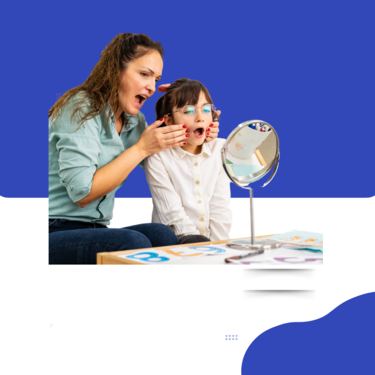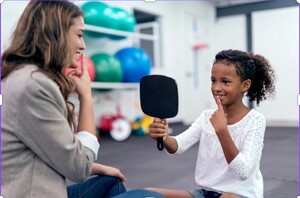Speech and Language Therapy Services

Strong communication skills are essential for speaking, thinking, reading, writing, and social interaction. PCS Speech-Language Pathologists (SLPs) support students who experience communication difficulties that impact their learning and participation at school.
Speech-Language services include:
- Assessment of communication, language, and social skills
- Individual, group, and in-class intervention for speech, language, literacy, and social communication
- Collaboration with teachers and school teams to embed goals into routines
- Consultation for student-specific needs and strategies
- Direct support by SLP Assistants and Educational Assistants under supervision
- Prevention-focused programming, including screenings, classroom lessons, and targeted social skills instruction
- Hearing screening for all students receiving speech‑language therapy, to identify any hearing issues that could impact speech and language outcomes. Alberta's College of SLPs and Audiologists recommends a hearing screen be completed before or at the time of assessment to prevent misdiagnosis and ensure students receive appropriate intervention
PCS SLPs help build strong foundations for learning by supporting students in expressing themselves and understanding others.
Consider a referral when a student:
- Is not meeting developmental speech milestones, such as continuing to use baby talk or unclear speech past the expected age (e.g., says “wabbit” for “rabbit” or “fumb” for “thumb” beyond age 5)
- Has difficulty being understood by unfamiliar listeners, even in short phrases or sentences
- Struggles to follow instructions or understand classroom language
- Has limited vocabulary or difficulty forming sentences and expressing ideas
- Shows frustration when trying to communicate or is often misunderstood
- Has difficulty with social communication (e.g., making eye contact, taking turns in conversation, using gestures appropriately)
- Is non-verbal or uses alternative communication (e.g., visuals, gestures, AAC devices)
- Has an existing diagnosis (e.g., speech-language delay, apraxia, autism spectrum disorder) and needs support with communication development

